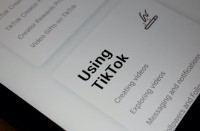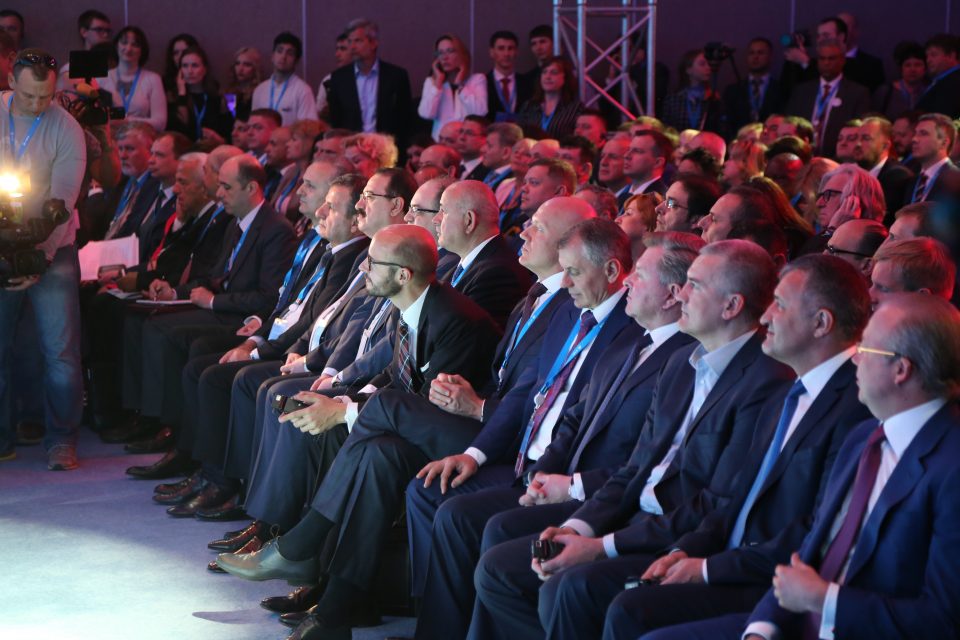
Showcasing the growing development of the Crimean region and the rest of Russia, the 4th Yalta International Economic Forum (YIEF) focused on the theme “Future World, Future Russia” at the Mriya Resort and Spa, Republic of Crimea from April 18-21, 2018.
Attended by around three thousand delegates from 71 countries including the Philippines, the 2018 YIEF established itself as a global platform in the discussion of economic affairs under the modern geopolitical, social and cultural environment.
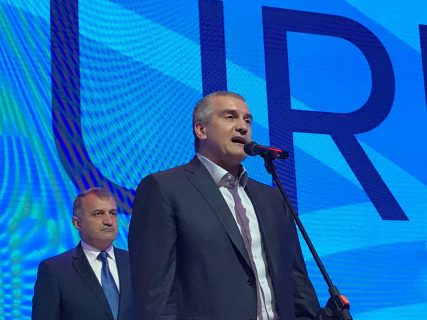
At the opening ceremony at the Russia Hall of Mria, the Head of the Republic of Crimea, Sergey Aksenov said, “everyone will work on the constructive work of the forum and that is a real milestone of our economic development, so we are rapidly developing.”
“We are going to show all our achievements and our developments over the past years and the result of this forum is already visible in the airport of Simferopol,” Aksenov added.
Aksenov said that “the agreement to construct the new airport was done two years ago within the framework of the Yalta forum and we already see its tangible result.” Simferopol airport was built in just 22 months and officially opened to passengers just in time for the offical opening of the Yalta forum.
The Yalta forum is a powerful business gathering that attracts huge investments. The Head of the Republic of Crimea forecasted seeing “real good developments and achievements of the Russian investors and we hope the forum will be a constructive and instrumental for the development of all.”
In an exclusive interview by Eagle News immediately after the Head of the Republic of Crimea met with foreign journalists, Aksenov mentioned to eaglenews.ph that contracts have been subscribed today, April 20 and agreements will also be crafted before the forum ends this Saturday which will happen at the historic Livadia Palace where the economic development of Syria will be tackled.
Andrey Nazarov, co-chairman of the Organizing Committee of YIEF 2018 and co-chairman of the Delovaya Rossiya All Russia Public Organization, announced that the result of the agreements and contracts signed since the beginning of the initiative four years ago has considerably increased by four-fold and is now exceeding 100 billion rubles in investments.
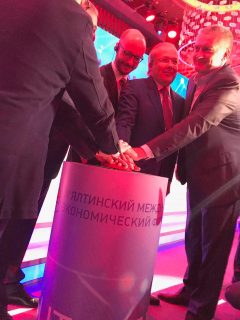
“It is just the very of the start of the process,” he declared.
Nazarov also said that the Forum has become “the center of gravity for quite a number of businessmen, politicians, investors and economic analysts which is our great achievement.”
He thanked the foreign delegates from 71 countries. “The sanctions did not interfere into the process. The message of the President of the Russian Federation is to provide a breakthrough in the Crimean peninsula in terms of information and production, developing the region economically, providing high living standards to the population,” he emphasized.
Business Agenda
The Yalta Forum’s agenda provides a wealth of information to investors about the huge potential of southern Russia and favourable conditions for investing in its economy.
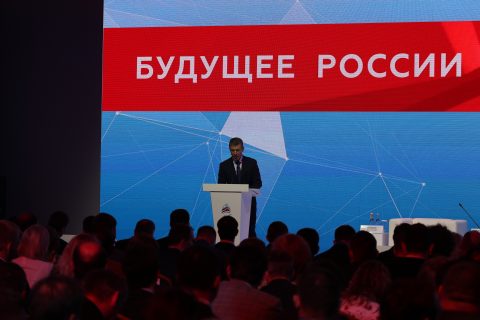 Diverse topics were discussed at the Yalta Forum that includes the following the Crimea strategy of development until 2030. Crimea, a large food producer, is one of the largest tourist and sanatorium resort centers of Russia. The region is also where the main shipbuilding capacities of Russia are located.
Diverse topics were discussed at the Yalta Forum that includes the following the Crimea strategy of development until 2030. Crimea, a large food producer, is one of the largest tourist and sanatorium resort centers of Russia. The region is also where the main shipbuilding capacities of Russia are located.
The construction industry in Russia is also booming with the strategy of commissioning 120 million square meters for housing.
In the area of digital economy, blockchain and crypto currencies were part of the topics on innovation as about two million Russians have already been involved on crypto economics and the country intends to be a leader in this new economy.
More than 30 breakout sessions were conducted, some of them simultaneously, which aimed to provide strategic initiatives that highlight investment opportunities in the Crimean region.
The forum aims to stir the interest of foreign partners that lead to the launch of new projects in high-tech industries, culture, the environment, tourism and construction.
Open for business
Vladimir Putin, the President of the Russian Federation, mentioned in his message to the Friends of Crimea that “the involvement of representatives and central and regional government, parliamentarians, public and political figures, and business leaders from over twenty countries – is evidence of the rising interest in establishing economic, humanitarian and cultural ties with the Republic of Crimea.”
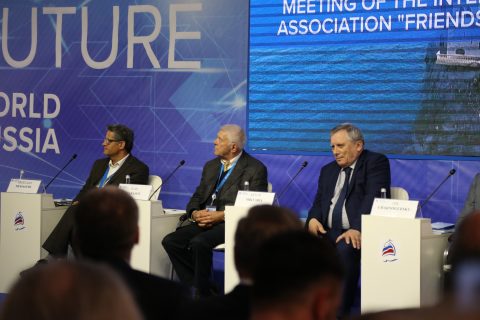
“It is a region that is dynamically growing and open for business in every possible sphere, “Putin’s message emphasized.
“The evolution of constructive dialogue between each member of the international community must be built on the principles of equality and “mutual respect,” Putin emphasized.
No to war-mongering
“We hear the international community coming from Theresa May, the British Prime Minister and Donald Trump, but thus this was the international community here, this afternoon” broadcast journalist Neil Clark said. He moderated the plenary session on the “Future of the World” with speakers from Mali, Zimbabwe and Syria.
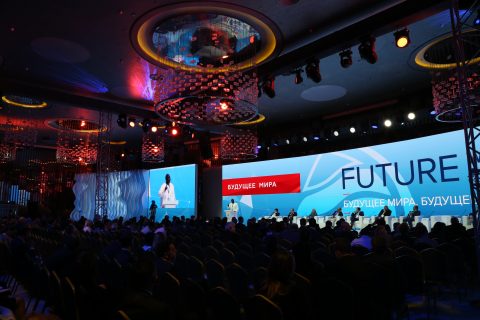
This forum happens at a crucial time, without being over dramatic, there is graver risk now of breaking out in a major international conflict in a few weeks or months,” he warned.
“The US and its allies are hell bent on a regime change in Syria at all costs,”Clark mentioned. “There is a great danger that they could be bombing again and that could lead to a confrontation with Russia and Iran and Israel could be a major conflict, “he said.
“The message coming out from this forum is very clear: we have to say no to this, we’ve got to stand up against these countries who are pushing this war agenda,” Clark said.
“There is a vast majority who wants to live in peace, and they want to work together…the message is clear that these countries want an end to this war-mongering” he stressed.
“People want to fight back against war lobby, ” Clark said. He said that he was struck by the voice from Africa. “African voice must be heard more loudly. It is overlooked too often,” he stressed. He added that we should learn from Africa as they know all about imperialism and colonization. They must be the voice that we must be particularly listening to,” Clark mentioned.
“We’ve got to get away from this very US-centric perspective which is unbelievably insular – it is just Westminster and Washington,”Clark said. But at forum in Crimea, “the African voice was heard here in Yalta, it is not heard in the west,” he added.
However, “there is an integration between the peoples of the world through internationalism,” Clark said. “We have to speak now and say enough is enough,”Clark cited.
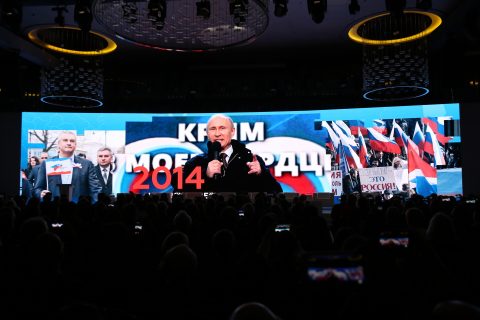
Role of Media
A journalist himself, Neil Clark said that the role of media is to build a genuine world of equals where we have all the countries in the world having an equal voice. “We shouldn’t get into the situation of the President of the US and the UK who go around acting as judge and executioner,” he said.
“We’ve got to have a truly international journalism and having events like this where we got people from African countries and Asian countries and all over the world coming together,” Clark added.
Yalta’s historical significance as a venue of international cooperation dates back as early as 1945 when the heads of the United States, United Kingdom and Soviet Union convened to discuss the post-war reorganization of Germany and Europe. The meeting of President Franklin D. Roosevelt, Prime Minister Winston Churchill and Premier Joseph Stalin is known as the Yalta Conference, also called the Crimea Conference and code named Argonaut.

